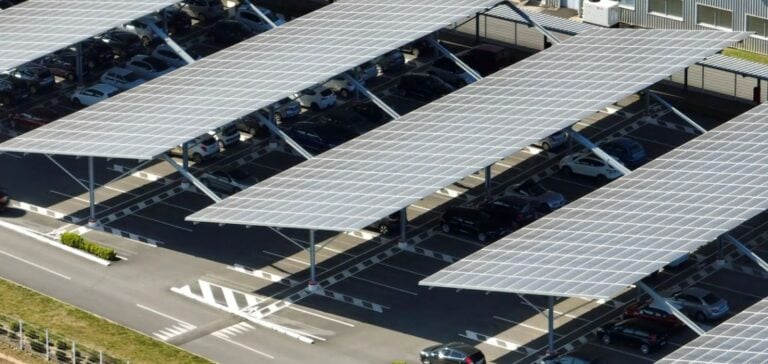A decree published this Wednesday in the Journal officiel grants an additional delay for the mandatory installation of photovoltaic canopies on outdoor parking lots in France. Initially set for mid-2026, the deadline has been extended to January 1, 2028, for large parking lots and July 1, 2028, for smaller facilities. These structures, covered with solar panels, help generate renewable energy while providing shade.
A necessary delay for the retail sector
The retail sector, which is particularly impacted with over 70 million square meters of parking lots, expressed concerns over the feasibility of the original timeline. In April, representatives of the sector requested a two-year postponement, citing logistical and financial challenges. While the government did not grant the full extension, managers now have an extra 18 months to comply.
However, to benefit from this extension, certain conditions must be met. Managers are required to provide proof of a “commitment contract with a deposit” by December 31, 2024, and finalize a purchase order for solar panels by the end of 2025.
Technical and geopolitical constraints
Another significant aspect of the decree is the requirement for the origin of solar panels. The modules must be assembled by a company that does not perform most of its production in non-European countries such as China. This clause aims to promote European production in response to China’s dominance, which accounted for 97% of imports in 2023.
The decree excludes certain areas, such as storage spaces and green zones, from the calculation of eligible surfaces but includes traffic lanes. Parking lots naturally shaded by trees (one tree for three parking spots) are exempt from this obligation.
Penalties for non-compliance
The law enforces strict financial penalties for non-compliance. Fines may reach up to €40,000 per year until the infrastructures are brought into compliance. These measures reflect the government’s commitment to strengthening the energy transition while considering the economic constraints faced by the sector.






















